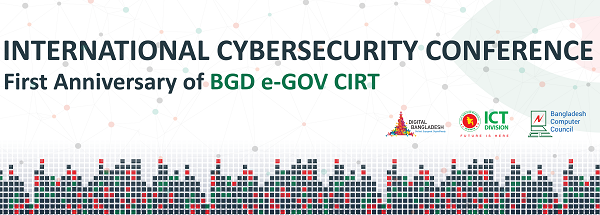Description: The expandArguments function in the database abstraction API in Drupal core 7.x before 7.32 does not properly construct prepared statements, which allows remote attackers to conduct SQL injection attacks via an array containing crafted keys. Impact: A vulnerability in this API allows an attacker to send specially crafted requests resulting in arbitrary SQL execution. Depending on the content of the requests this can lead...
Read More
Description: The user interface for assigning taxonomy terms in Press is shown to users who do not have permissions to use it. WP_Query is vulnerable to a SQL injection (SQLi) when passing unsafe data. WordPress core is not directly vulnerable to this issue. A cross-site scripting (XSS) vulnerability was discovered in the posts list table. An unauthenticated privilege escalation vulnerability was discovered in a REST...
Read More
Description: WordPress plugin NextGEN Gallery has severe SQL Injection vulnerability. According to the original source, one of the following conditions must be met for exploitation: The use of a NextGEN Basic TagCloud gallery. If users are able to submit posts to be reviewed (contributors). Impact: This vulnerability allows an unauthenticated user to grab data from the victim’s website database including sensitive user information. Mitigation: Vendor...
Read More
The government in collaboration with cyber security and tech giants is going to organize an international cyber security conference in the capital on 9 March 2017 aims at taking a coordinated initiative to prevent and check the alarming rise of cyber-attacks. Leveraging ICT for Growth, Employment and Governance (LICT) of ICT Division, US based Fire Eye, CISCO, CA Technologies, Microsoft, One World InfoTech, Europe based...
Read More
CVE-2016-0099: The Secondary Logon Service in Microsoft Windows Vista SP2, Windows Server 2008 SP2 and R2 SP1, Windows 7 SP1, Windows 8.1, Windows Server 2012 Gold and R2, Windows RT 8.1, Windows 10 Gold and 1511 does not properly process request handles, which allows local users to gain privileges via a crafted application, aka “Secondary Logon Elevation of Privilege Vulnerability.” Mitigation: Microsoft has released patches...
Read More
CVE-2016-5195: Race condition in mm/gup.c in the Linux kernel 2.x through 4.x before 4.8.3 allows local users to gain privileges by leveraging incorrect handling of a copy-on-write (COW) feature to write to a read-only memory mapping, as exploited in the wild in October 2016, aka “Dirty COW.” Mitigation: Updates are available. Please check vendor advisory for more information. Reference URL’s: https://cve.mitre.org/cgi-bin/cvename.cgi?name=CVE-2016-5195 https://dirtycow.ninja/ https://access.redhat.com/security/cve/cve-2016-5195 https://access.redhat.com/security/vulnerabilities/DirtyCow https://security-tracker.debian.org/tracker/CVE-2016-5195
The more severe of these vulnerabilities could allow elevation of privilege if an attacker logs on locally and runs arbitrary code in kernel mode. An attacker could then install programs, view, change or delete data or create new accounts with full user rights. Mitigation: Microsoft has released patches for Windows Platform. Reference URL’s: http://www.cvedetails.com/cve/cve-2015-1676 http://www.cvedetails.com/cve/cve-2015-1677 http://www.cvedetails.com/cve/cve-2015-1678 http://www.cvedetails.com/cve/cve-2015-1679 http://www.cvedetails.com/cve/cve-2015-1680 http://www.cvedetails.com/cve/cve-2015-1701 https://technet.microsoft.com/library/security/MS15-051 https://support.microsoft.com/en-us/help/3057191/ms15-051-vulnerabilities-in-windows-kernel-mode-drivers-could-allow-information-disclosure-may-12,-2015
New CVE-2017-6074 Linux local root exploit was published. CVE-2017-6074: The dccp_rcv_state_process function in net/dccp/input.c in the Linux kernel through 4.9.11 mishandles DCCP_PKT_REQUEST packet data structures in the LISTEN state, which allows local users to obtain root privileges or cause a denial of service (double free) via an application that makes an IPV6_RECVPKTINFO setsockopt system call. Mitigation: Recent versions of the SELinux policy can mitigate this flaw....
Read More
ISC announced CVE-2017-3135, a denial-of-service vulnerability that can affect resolvers using both DNS64 and RPZ to rewrite responses for the same view. This affects all BIND 9.9 releases since 9.9.3, all BIND 9.10 releases, and all BIND 9.11 releases, including the 9.9.10b1, 9.10.5b1, and 9.11.1b1 releases. Mitigation: Upgrade to the patched release most closely related to your current version of BIND. These can all be...
Read More
Researchers at Proofpoint discovered an infection technique which targets only chrome users on Windows. The Chrome users are targeted with Font Wasn’t Found Social Engineering Scheme if they navigate to a compromised website through search engines. Once users runs the downloaded file dubbed as “Chrome_Font.exe”, it gets installed and infects the user system. Upon infection, the computer will start browsing in the background on its...
Read More











